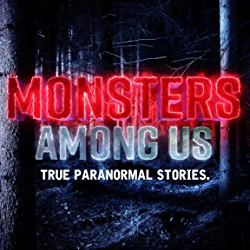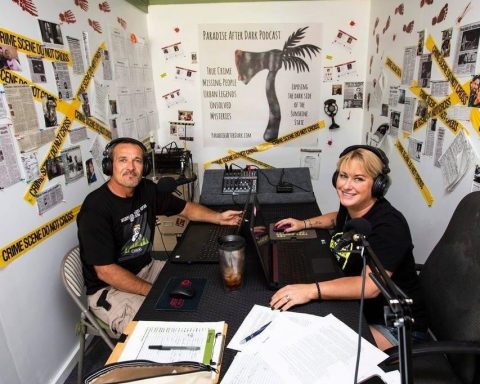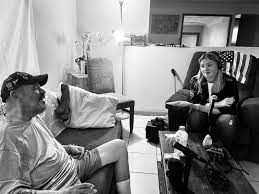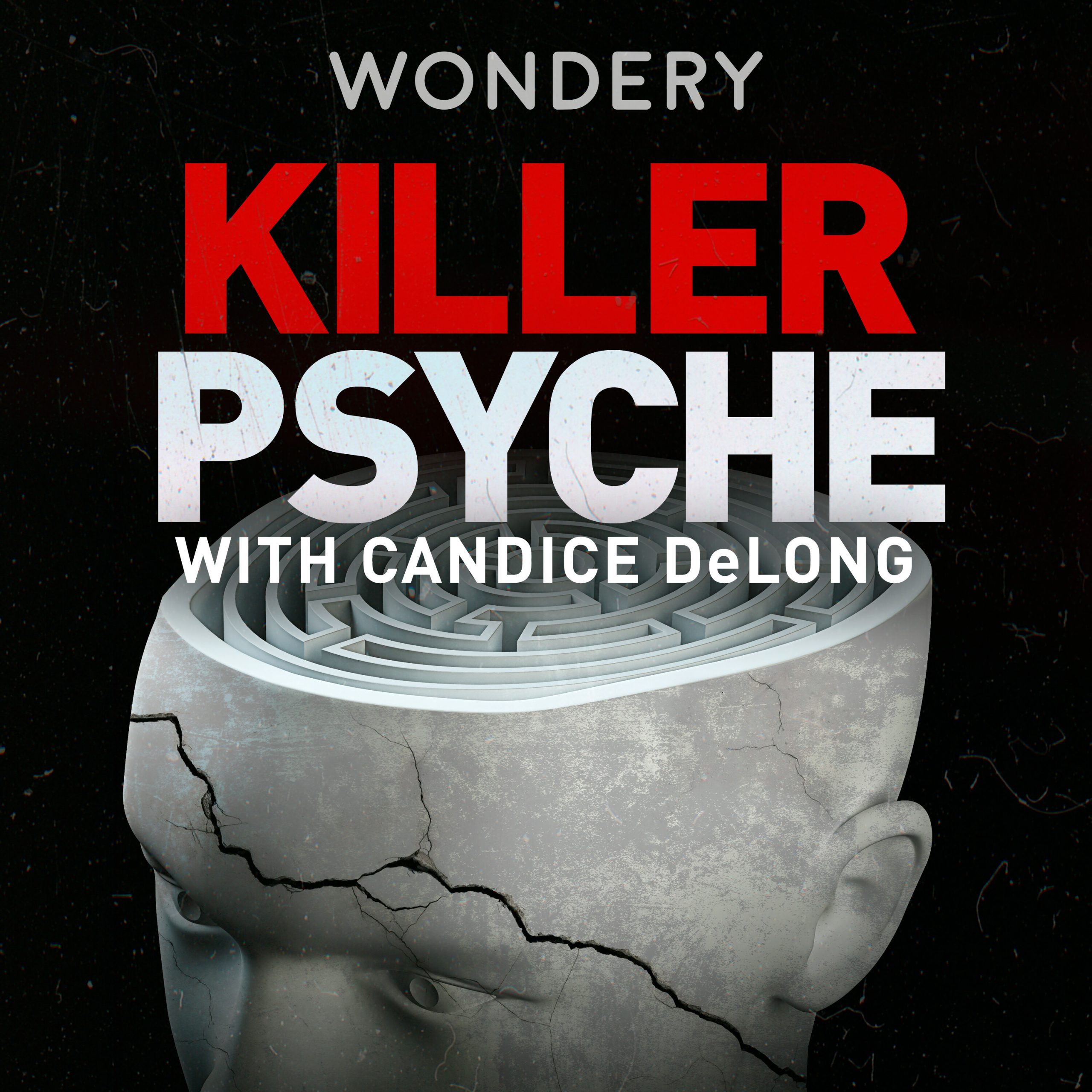This is Part Four, the final installment, of our series featuring our true-crime panel.
So far, we have covered some intriguing questions:
Part One – Why do you “true crime”?
Part Two – How do you “podcast”?
Part Three – What do you do when it’s too much?
We have now come full circle with this last chapter, for which we return to the “why” question and segue into “What keeps you going?”
And the answer is clear:
The search for the truth. A determined hunt for a resolution.
Or, as Anna-Sigga put it, “a fascination for the facts.”
As a reminder, here are our panelists:
Margot, host of Military Murder
Lori, host of The Unlovely Truth
Anna-Sigga, cohost of Anatomy of Murder
Kenzi and Holly, cohosts of Crimeaholics
Jake, cohost of Strictly Stalking
We left off Part Three by alluding to that fascination for the facts, in relation to the discussion about the podcasting endeavor being one of not just entertainment, but purpose.
Anna-Sigga explains, “As a prosecutor, I’m fascinated by the facts. I’m fascinated with bottling and presenting them in an entertaining way even though that’s not the main purpose. Hopefully, I am also offering a shot of education in there.”
Anna-Sigga likens the relationship with her listeners to her brand of storytelling in a courtroom—a way of entertaining the jury that fosters their zeal for the facts:
“In the courtroom, I only gave them that which they needed. But I also had to tell a story that they wanted to listen to. You have to entertain, because you need to keep them engaged. Then, you get the evidence out.”
Margot continued about the aspect of using facts as the basis of her storytelling and the brand of entertainment she offers via Military Murder. “When I press ‘record,’ every single time, I envision the person driving his or her kids to work. The kids are driving her insane, so she puts on one headphone, just trying to kind of enter into a different world. She wants to hear a story. That’s who I’m telling the story to. It’s amazing to me when I see reviews from listeners who are like ‘Oh my God! You are my new best friend.’ That really means a lot to me. I’m not only telling a story, but doing it in a way that’s going to keep people’s attention.”
She went on to talk about how sharing the facts with her audience serves a clear and real purpose. “I’m informing them. My number-one thing is encouraging people to remain vigilant. Don’t leave your kids with just anyone. Do the background check, even if the person was in the military. Even if he’s a retired general. Do the background check. Don’t just brush it off as, ‘That’s my best friend. She’d never do something like that.’ Thankfully, my listeners hear that, and that’s what keeps me going.”
Lori, host of The Unlovely Truth, has definitely latched onto the “informing and educating” purpose of a true-crime podcast. “I’m naturally kind of a bossy person,” she laughs. “My podcast is really about trying to get people to do things. Don’t just listen to these stories. Go look at that not-for-profit that I’ve mentioned. I try to surround myself with people who know more than I do. That’s why I went with an interview format for my podcast. I get people who have all kinds of experience and knowledge in areas I don’t. It’s been a great learning experience for me, and I’m just hoping to pass that on to people.”
This spurred a poignant comment from Jake on the impact a true-crime podcast can make. “How quickly I realized that these stories are really making an impact. Whether it’s sharing knowledge or creating change, I feel so proud that we’re able to work with our guests in order to amplify their cause in a way they otherwise haven’t been able to. It’s very rewarding to know that what we’re sharing is actually making an impact on someone’s life.”
Holly spoke to the power of the medium of podcasting in sharing the facts of a case. “We have people who read the newspaper. We have people who read magazines. We have people who watch YouTube. We have people who only get their news from Facebook. In my opinion, a podcast is a source of information for those people who don’t do all the above. When the Gabby Petito case was at its peak, I had people coming to our TikTok page to find out what was going on. I wanted to boil down all of the information, because I knew what I was going to share was actually factual. I was losing sleep over it.”
Holly’s comments tied into one of the underlying themes of this over two-and-half hour panel discussion in that most true-crime podcasts serve a very real and clear purpose in society. Jake alluded to the fact that some podcasters are not simply being narrators, but victims’ advocates. Sometimes, it takes someone other than law enforcement, the judicial system, or politicians to share the facts that maybe no one else wants to.
Jake spoke to that very point from the perspective of stalking victims:
“People look to you for hope… to be able to help them if not get justice, then to at least be heard. Because nobody wants to hear these people a lot of times. They’re often shunned by law enforcement, and even their own friends and family may mock their situation. A lot of times, they feel no support. We’ve had people say to us [the hosts of Strictly Stalking], ‘You are our only beacon of support.’ I can’t imagine being in a world where it’s so difficult to get somebody to listen to you.”
The very name of Lori’s podcast, The Unlovely Truth, in and of itself speaks to the need for the tenacious digging for the facts, even when many others have stopped the search. Lori shared a perfect example:
“One of my guests had a daughter who was stalked and murdered. The police quickly ruled it a suicide and didn’t really look into the stalking. They didn’t really appreciate the fact that some of the sheets for her bed were missing. If it was a suicide, why would that be?”
It is exactly that type of fascination for the facts that makes a difference.
As I wrap up this series, I realize I probably won’t do the entire panel conversation complete justice (pun intended). Our conversation covered so many aspects and had several positive twists and turns. I was truly sorry to see it end.
I’m reminded of Jake’s comments regarding the fact that when you dive into the world of True Crime, you may think it’s entertainment, but you quickly come to the realization that it is so much more. Personally, when I first took the plunge into this category, it was because of my connection to law enforcement. I thought covering the genre would be well-aligned with other areas of my career. That has certainly proven to be the case, but it also turned into a true passion in and of itself.
What most true-crime podcasters do—as is certainly the case with all the experts who participated in this panel discussion—is provide a clear and necessary service to society. This is an aspect of the genre I didn’t realize until I began covering the category.
A fascination for the facts among true-crime podcasters has helped solve crimes, some that I believe would still be cold cases otherwise. They tenaciously keep missing persons in the public eye, so they are not forgotten. They provide us with much-needed information, whereby a little nugget of wisdom may be just what keeps us safe. And they offer us knowledge that sparks many of us to make needed change in this world.
Many of us, myself included, are staunch supporters of law enforcement. As with any profession, there are some who are better than others. Most are very passionate about the police work they do. Almost all are lacking the resources to do their jobs at the highest level. And many end up retiring with that unsolved case that still keeps them up at night.
That brings us back full circle to the very first question asked of the panel: Why do you “true crime”?
Kenzie, from Crimeaholics, gave the most direct answer:
“To be of service to law enforcement.”
I believe many share that mission. Not only that, but True Crime podcasting is a service to us all.
May 2022 Issue













